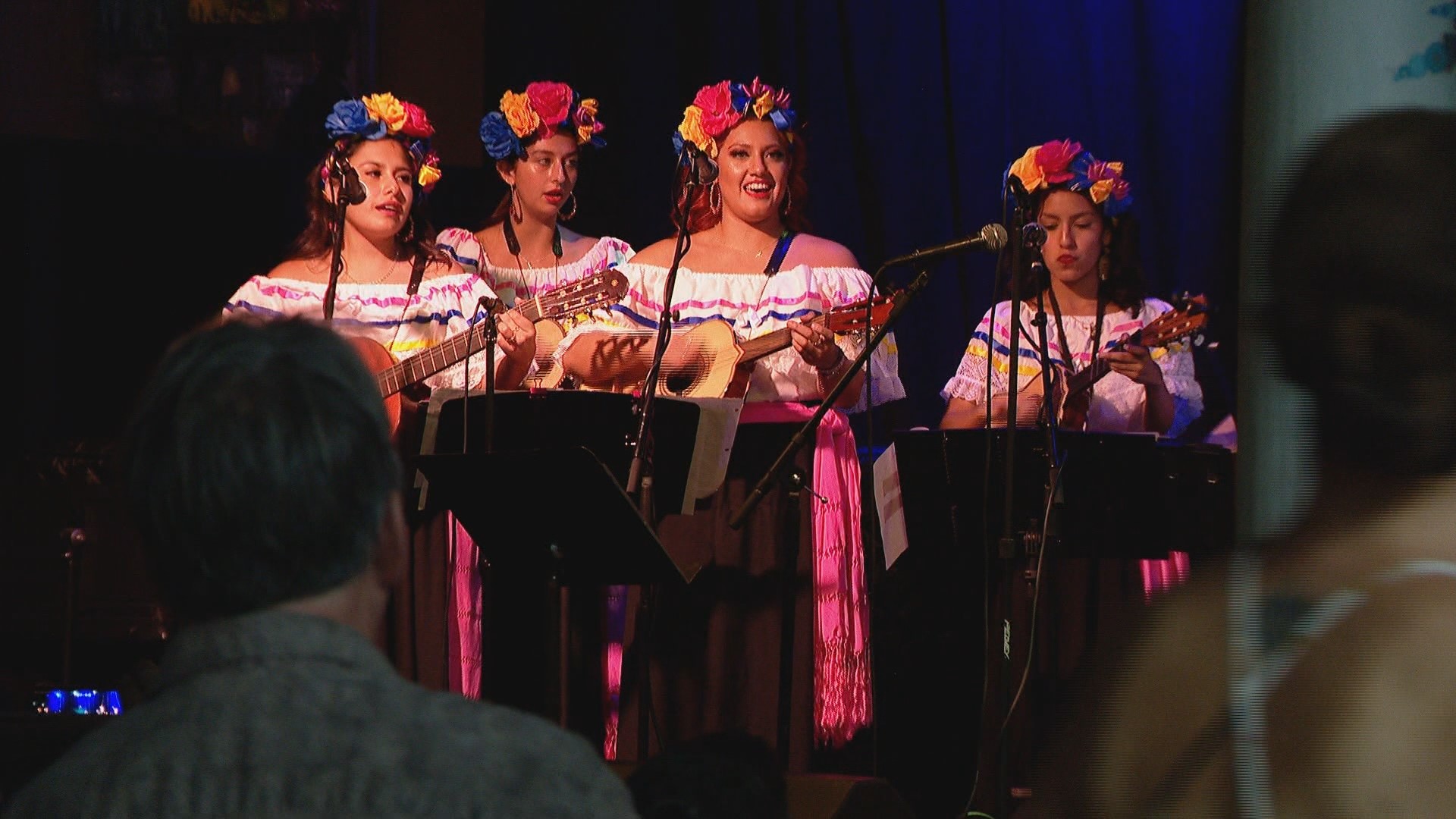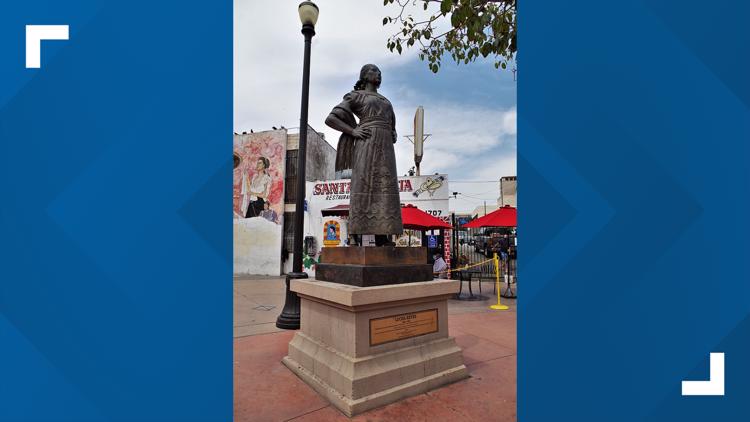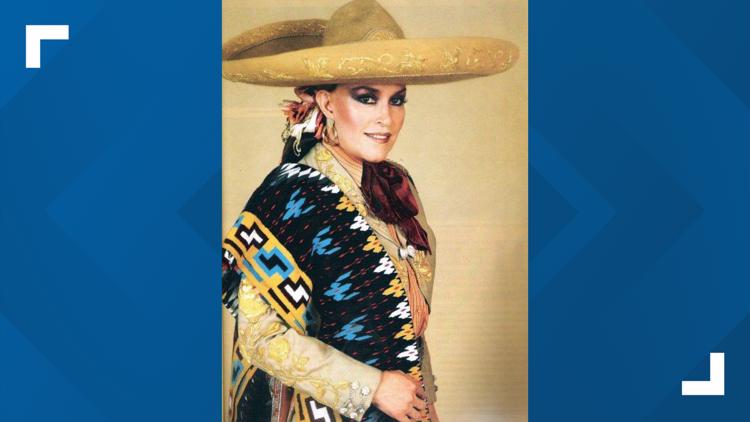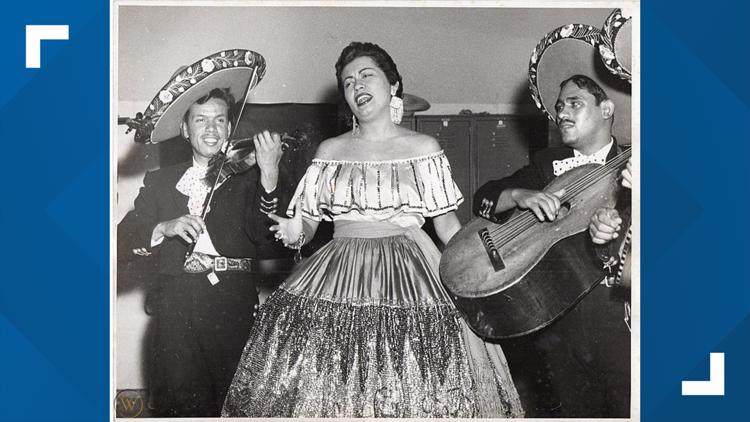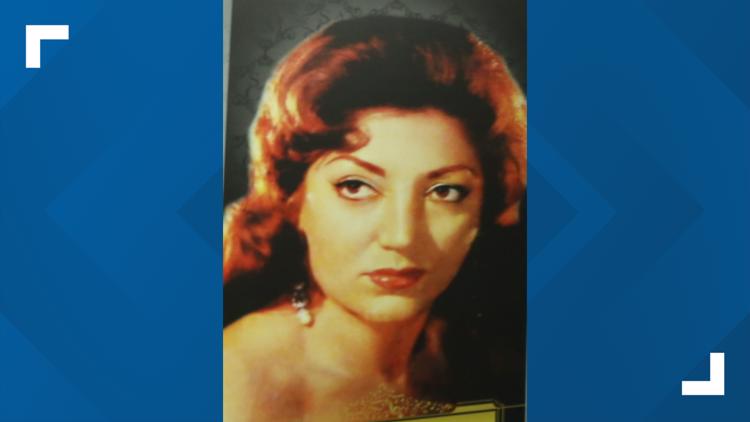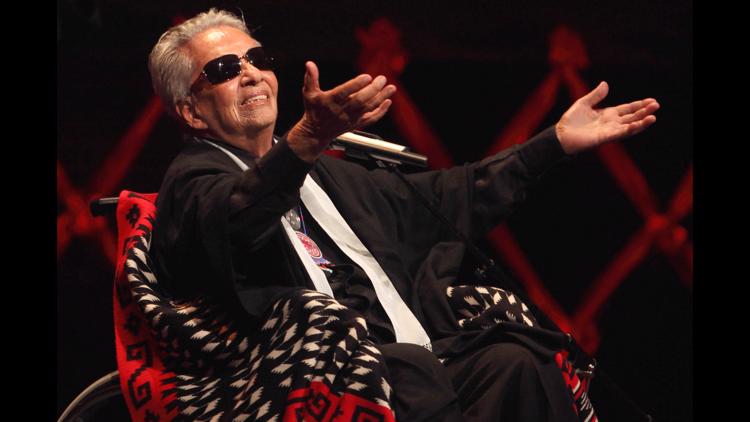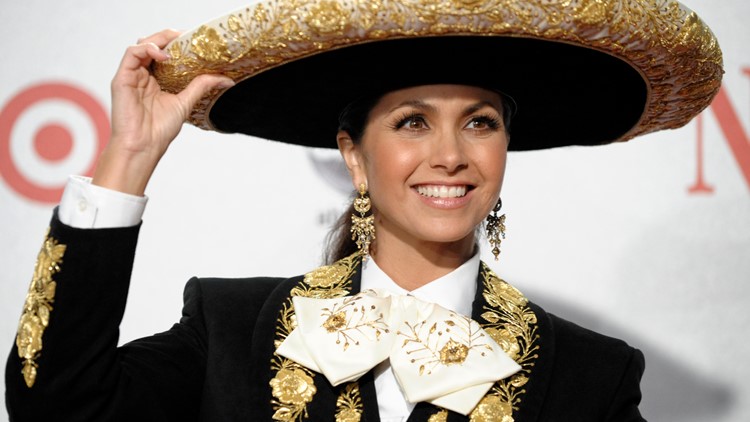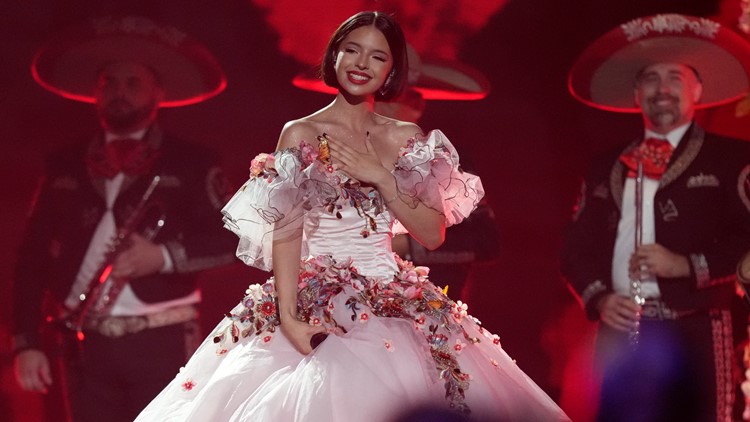DENVER, Colorado — Mariachi has long been dominated by men since its inception in Mexico, dating back as far as the late 1700s. The music that is still popular today has often excluded women from performing groups, but one mariachi band in Denver ensures that women who are passionate about mariachi have a chance to learn and perform in the genre.
The Liñan family has long-standing roots in mariachi for decades, with sisters Pam and Jackie now preserving their family legacy in the genre.
"Having the mariachi music and the ballot Folklorico, getting the culture, it’s been ingrained in us," said sister Jackie. "My father was a broker of mariachis. He brought the first mariachi group to Colorado to Denver to play at Casa Bonita in the 70s. So he did that."
As they were growing up, the two sisters would participate in the shows through baile Folklorico, which translates into folklore dance. The style of dance also has its roots in Mexico.
Jackie and Pam learned different styles from various regions as they were growing up and still reminisce, thanks to a number of old tapes that captured their performances.
Female singers of ranchera music over the years
"In our younger days when our knees were working, we were able to move," said Jackie, as she watched an old tape that has been converted from VHS. The tapes include their mother and father along with old family friends.
"You’re just having fun doing it and celebrating the culture and dancing with your friends. It was a lot of fun. Sometimes it was a bit of work, didn’t always want to have practice and stuff but when you got together, it was a lot of fun," said Pam.
They took their performances to different venues across Colorado, sharing their culture and heritage with the Hispanic/Latino community and others who had never been exposed to traditional dance and music.

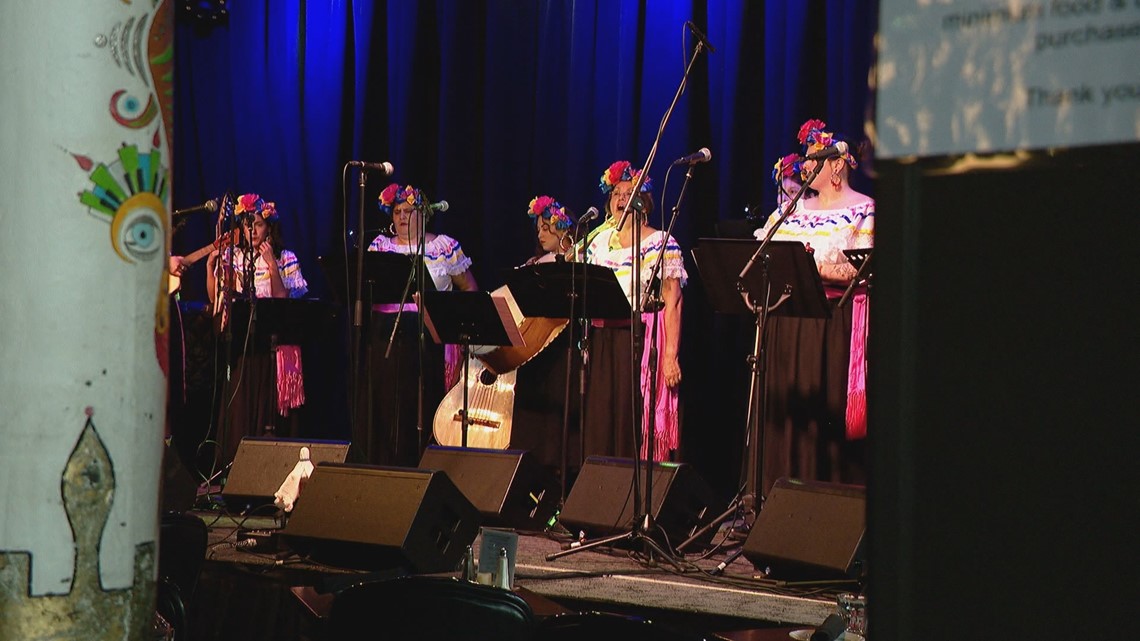
"[My dad] brought the first mariachi group to Colorado, to Denver to play at Casa Bonita in the 70s," said Jackie.
Both sisters became educators and later, Pam started the first mariachi program at Denver Public Schools 20 years ago when she was a teacher at Bryant-Webster Dual Language School in north Denver. When she was promoted to work in administration, Jackie later joined her to become an instructor in the program as well.
When Pam retired, she knew there was a desire for many students to continue preserving mariachi. She promised her former students that she would continue and have them come back in some way.
Out of that mission, she formed Mariachi Alma Del Folklore, based out of Denver. The group is comprised entirely of women. Some of them are still in high school while others have their own careers and occupations.
"I guess I like being a pioneer in a sense, starting new things, but they need to have a chance. When I talked with the kids, we had a roundtable and I had several boys that wanted to participate, but who really stuck it out? It was the girls," said Pam.

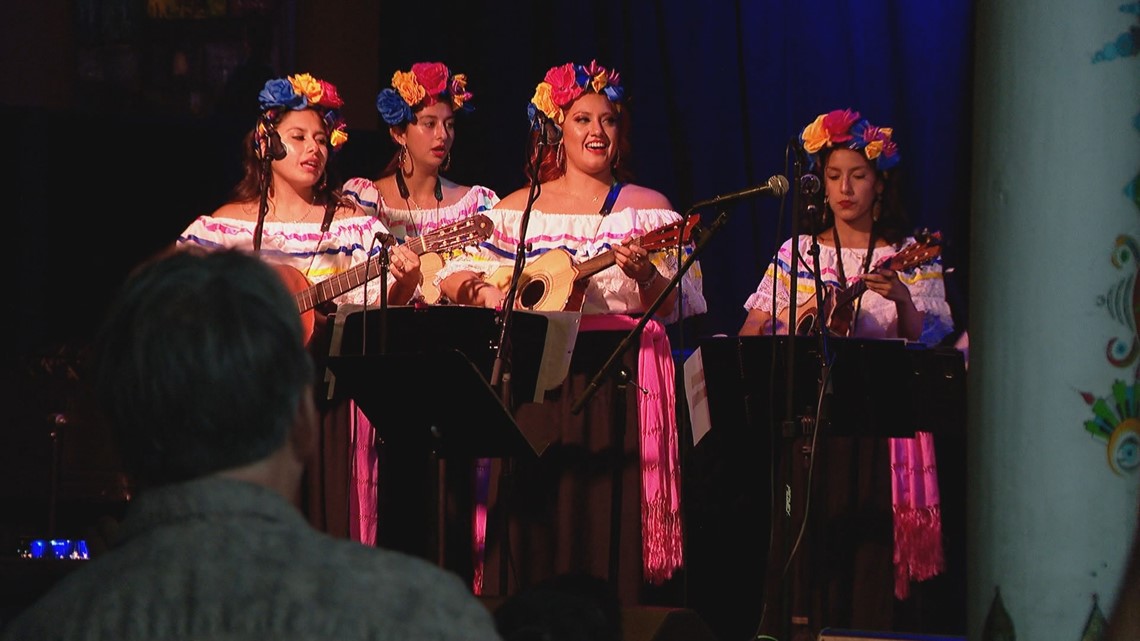
"When my father brought mariachi groups, it was all male. You did not hear of any female mariachi groups. There were some scattered around the United States and also in Mexico, but it was far and few between," said Jackie. "Having females in a mariachi band is something new that has come about and I think it’s great. I think it’s fabulous that we also get to share our culture and share our heritage through music, through the mariachi genre of music."
Some of those girls that "stuck it out" are a part of Mariachi Alma Del Folklore today, and have known Pam and Jackie since they were kids, some since they were four years old.
"Honestly, I have been with them since we started back in middle school or elementary program. When Pam started up the program at the school we went to, and I have been doing it since then," said Sofia Robinson who plays vihuela and also sings. "It’s always been a passion of mine. I’ve always loved the music and how it makes me feel."
While Sofia said that Pam pushes the group to work hard, she knows it's only so they can tap into their full potential, especially with going up against male groups.
"I’m all for women empowerment," said Sofia. "I think it’s great that we are all here together. It’s not something you see every day. The fact is that it pushes things outside the norm, and we come together and sound as good as we do. I think we have a fair shot with competing with men and other bands out there."
In order to prepare, the group practices weekly. Even during COVID, the group continued to rehearse over Zoom, but eventually started giving private lessons to every person in the mariachi group. Offering something to do during the lockdown, even if over Zoom, encouraged some of their newer members to join.

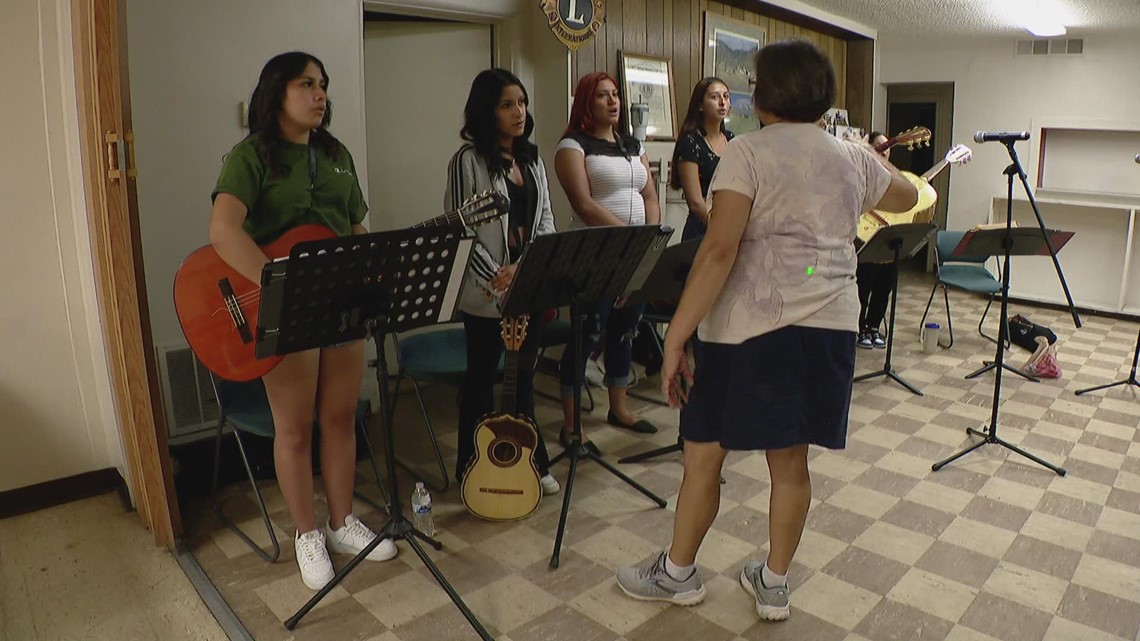
"My dad ran into one of the violinists that used to be my teacher growing up, just at the hardware store. She said they were looking for people, and I joined. It was a perfect thing to pick up during COVID because I wasn’t doing anything," said Trinity Payne, whose sister Deanna is also a part of the group. "I was like, 'Yes, I want to be a part of it. It was so much fun. It’s so different."
The work over the past four years has proven worth it. The group recently performed at Dazzle in August and other high-publicity events like Sabor, put on by the Hispanic Chamber of Commerce.
"People need to know that women can do this. Women have this passion for this music, even though it’s been male-dominated," said Pam. "There are people that snicker. Men that snicker in other mariachi groups. I can’t lie and say that we are totally accepted. I know that people are like, 'Hmmm, let’s see what they sound like,' but I think we do pretty well."
While many classic mariachi songs are in keys designed with men's voices in mind, Pam rewrites the music and alters it to adjust for female vocals. While it's hard to find men in the group, Pam also works with some men who are involved to make sure they aren't excluded.
Jari Pacheco is 14 years old and has been working with Pam to hone in on violin. He is the sole male member that rehearses with the group. Sometimes he will make appearances alongside the women as a "special guest."
"He sticks around and he comes back even though we do pick on him a little bit," said Trinity, who said that they have created some nicknames for Jari including 'Jari Jalapeno.'
"I think it’s a good opportunity for me to be in something like this and be the guest and have the honor to be the guest," said Pacheco.
When people watch them play, it feels empowering to the women off stage and to others too.
"I think it was beautiful, definitely moments where I got emotional, definitely beautiful. It reminded me of my culture, took me back to my roots," said Jacqueline Briones, who watched the group perform at Dazzle in August.
Many come to hear Mariachi Alma Del Folklore's music share some kind of background or relation to Mexico. Others don't, and simply want to experience a new genre of music.
"It’s so important for people to know other cultures other than their own," said Joanna Fuentes Pacheco, who has a friend in the group. "It makes me so proud to be Mexican, to be part of this heritage and to be listening to these songs that I have grown up with and make them more modern."
SUGGESTED VIDEOS: Hispanic Heritage

